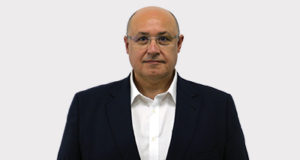Juan M. Murillo
Quantum Service-Oriented Computing: Challenges and Research Directions for Quantum and Hybrid Software System
Brief:
Quantum Computing is raising more interest day by day. The basis provided by Quantum Mechanics enabled the development of the Quantum Information Theory and the first Quantum Computers. From the hardware side, the advances are undeniable. Recently, the first 1000 qubit computer has been announced to be released next 2023.
Nevertheless, from the point of view of Software Engineering, advances in Quantum Computing are having less visibility. Part of the research community is still conservative and thinks that it is still early to tackle the development of quantum software engineering techniques. The reason is that how the quantum computers of the future will look like is still unknown. However, regardless of how they will be, there are some facts that we can affirm today. The first is that quantum and classical computers will coexist, each dedicated to the tasks at which they are most efficient. The second is that quantum computers will be part of the cloud infrastructure and will be, indeed already are, accessible through the Internet. Third, as is the case today, complex software systems will be made up of smaller pieces that will collaborate with each other. Fourth, some of those pieces will be quantum, therefore the systems of the future will be hybrid. Finally, the coexistence and interaction between the components of said hybrid systems will be supported by service composition and the development of quantum services will be governed by the current general criteria of Service Engineering (composability, reusability, maintainability, etc.)
Bearing all of the above in mind, this talk analyzes the challenges that the integration of quantum services poses to Service Oriented Computing. It determines what are the current technologies that can be used for creating and operating quantum services, the limitations they present for doing that and those technologies that do not exist today but can already begin to be designed.
Short Bio:
Professor Murillo is currently a Full Professor in the field of Software Engineering at the University of Extremadura (Spain). Throughout his career he has participated in more than 40 competitive research projects. He has also developed extensive collaboration with private companies, which has granted him the Award of Excellence for the Transfer of Research Results. All this activity is developed within the Quercus Software Engineering Group which he contributed to create in 1995. Currently, he leads the SPILab (Social and Pervasive Innovation Lab) which is focused on the development of service technology for mobile devices.
Professor Murillo and his lab are members of the Spanish network of Science and Engineering Services. Since 2012, the SPILab team has specialized in building distributed, service-oriented architectures for mobile devices. Their main contributions have been the Internet of People (IoP) concept and the People as a Service (PeaaS) architecture. Both promote considering mobile devices as an infrastructure integrated in the cloud in which services can be deployed. These concepts were some of the precursors of the need for what we know today as Fog and Mist Computing. In all this research, the application areas were that of health and aging. Finally, from 2018, the practical problems faced in the field of health have led him to open a new research direction related to the development of software for quantum systems and its integration with classical service-oriented ones. In this field, the SPILab is currently collaborating in the development of the QHealth project, which deals with the modeling of systems in the field of pharmacogenomics for the development of precision medicine. As part of the work in this field, QSERV, a proposal developed jointly with the University of Castilla-La Mancha and Prof. Mario Piattini for the development of service technology that supports the construction of hybrid classical/quantum systems has been granted by the Spanish Ministry of Science and Innovation.
Most recently, Prof Murillo was appointed General Manager of the Foundation of Computing and Advanced Technologies of Extremadura (COMPUTAEX). COMPUTAEX was created in 2009 by the regional government of Extremadura to promote the development of information technology, the use of intensive computation and advanced communications. The foundation manages CenitS, the Center for Research, Technological Innovation and Supercomputing. CenitS manages three supercomputers (LUSITANIA, LUSITANIA II y LUSITANIA III) which are a Singular Scientific and Technological Infrastructure (ICTS) recognized by the Spanish Ministry of Science and Innovation. COMPUTAEX is a member of the Spanish Supercomputing Network. Prof. Murillo will contribute to the specialization of CenitS in the fields of Health and Energy as well as the development of quantum software technologies to enable quantum computing such as future HPC.
